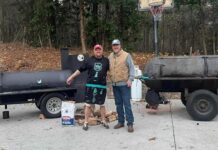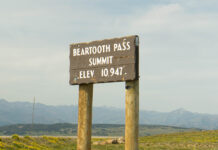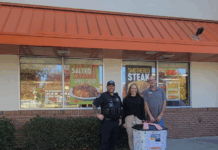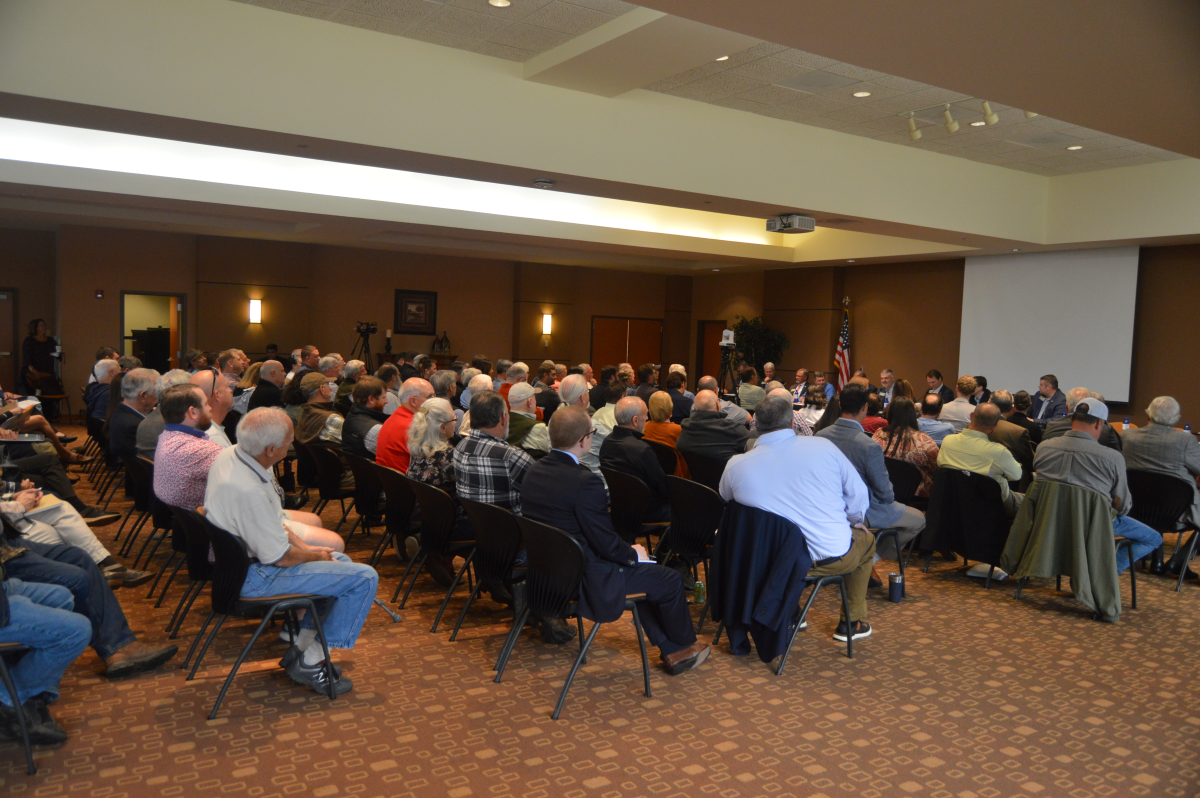
More than 200 people turned out in Clarkesville Thursday to weigh in on the simmering debate over public access to Georgia’s rivers.
The House Study Committee on Fishing Access to Freshwater Resources held a public hearing at Habersham EMC. The committee is working on legislation to clarify the rules balancing the public’s right to fish and private property rights.
Recent legal challenges brought the question into view after the state conceded that a private landowner could claim exclusive fishing rights on a popular stretch of the Flint River in southwest Georgia. The move alarmed proponents of public access, who worried other landowners would try to follow suit.
The issue landed in front of state lawmakers near the end of the 2023 legislative session. Using late-session maneuvers, they passed a bill designed to protect the public’s access to fishing on navigable waterways. The law asserts the state owns all navigable stream beds and, as such, can protect public access for fishing, hunting, passage, navigation, commerce, and transportation “pursuant to the common law public trust doctrine.”
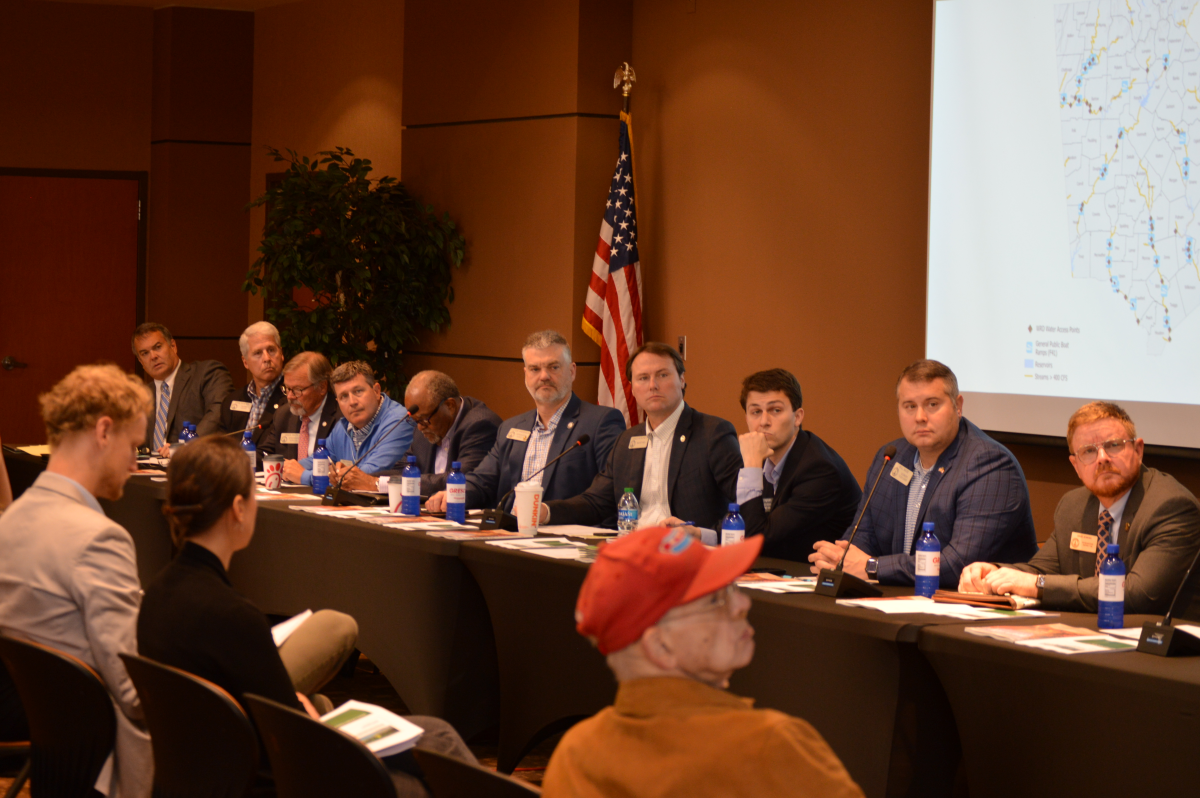
“The recent events of the litigation that took place has thrown this question of ‘where I can fish, where I can’t fish’ into ambiguity,” said House Study Committee Chair James Burchett (R-Waycross). “It’s not understood.”
Burchett said his goal is to provide clarity on the issue as it pertains to water and stream bed rights. In public meetings, such as the one held October 12 in Clarkesville, the committee is examining inconsistencies in the law and possible ‘fixes’ as they strive to balance the public’s interest with that of private property owners.
‘Unintended consequences’
Pat Hanington of Clarkesville is among those who oppose the new law as it currently stands.
“They have basically took away the ownership from people who have had property on both sides. This law that was signed into effect says that they no longer have the right to control the stream, even if they own both sides of it and to the center line of it. That’s scary to me,” said Paula Hanington of Clarkesville. “If that can happen by the stroke of the pen, what will be next?”
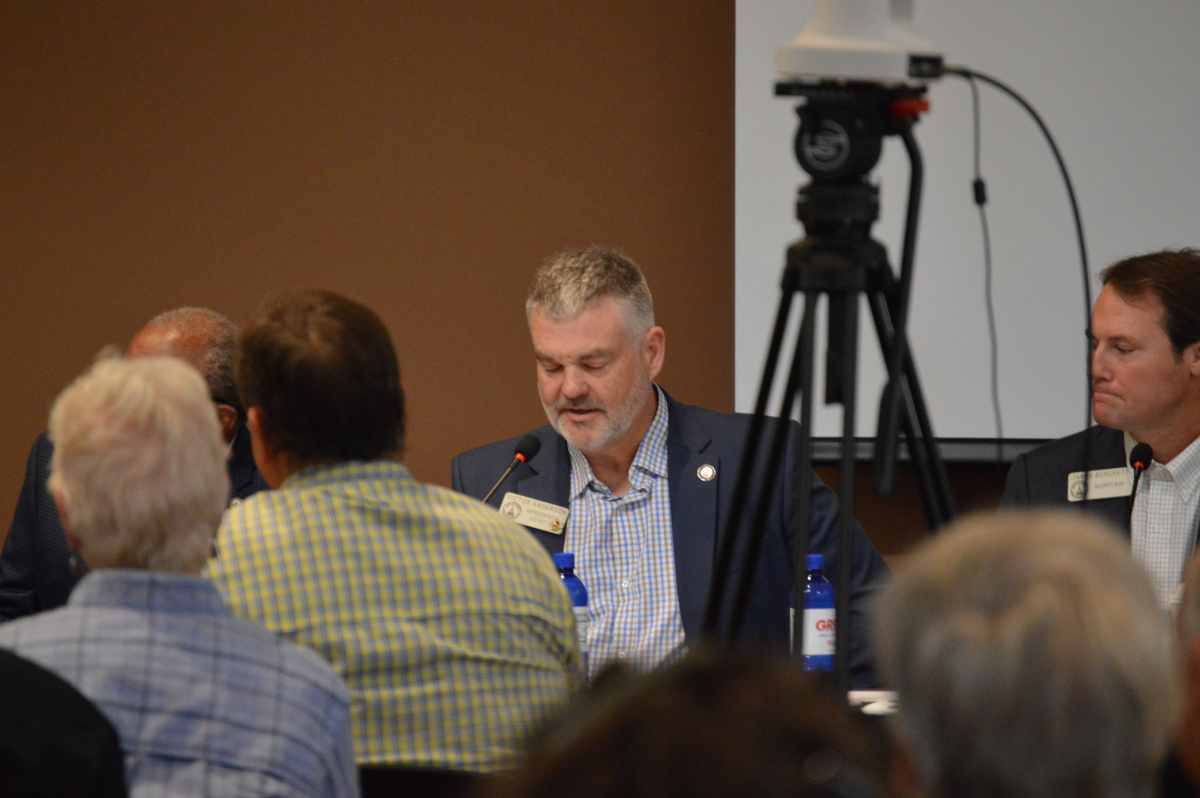
District 10 State Representative Victor Anderson (R-Cornelia) hosted Thursday’s meeting. He said bringing it home to Habersham was important to him because of the area’s connection to the upper Chattahoochee River and the Soque River. He said he wanted to make sure that “South Georgia politics don’t have unintended negative consequences on North Georgia.”
“When the resolution was first adopted and the committee was going to be put in place, even before I knew I would have an opportunity to serve on it, I went to the chairman of the committee and I said, ‘I need to have a meeting in Clarkesville, Georgia,” he told Now Habersham. “I need to have a meeting in Habersham County so that the people in our district and up this way that live on property and the rivers in this area have an opportunity to be heard.'”
Seeking clarity
They were heard, and one of the things many of them asked was for the state to keep the Soque and Chattahoochee listed as non-navigable waterways.
“Here it’s pretty straightforward [in] Habersham. [The] Soque River is a very straightforward river. Customarily [it’s] a private waterway, non-navigable, and it’s kept up by the private individuals,” Rep. Burchett told Now Habersham, pointing out that only a “very small portion” of the Soque is publicly accessible.
However, Burchett said that level of clarity does not exist in other parts of the state.
“One of the things that we uncovered in Gay, Georgia, is that on both sides of the issue – private property owners and the public fisherman – they just want to know where. Where can I go, where can I go, and where can I not go?”
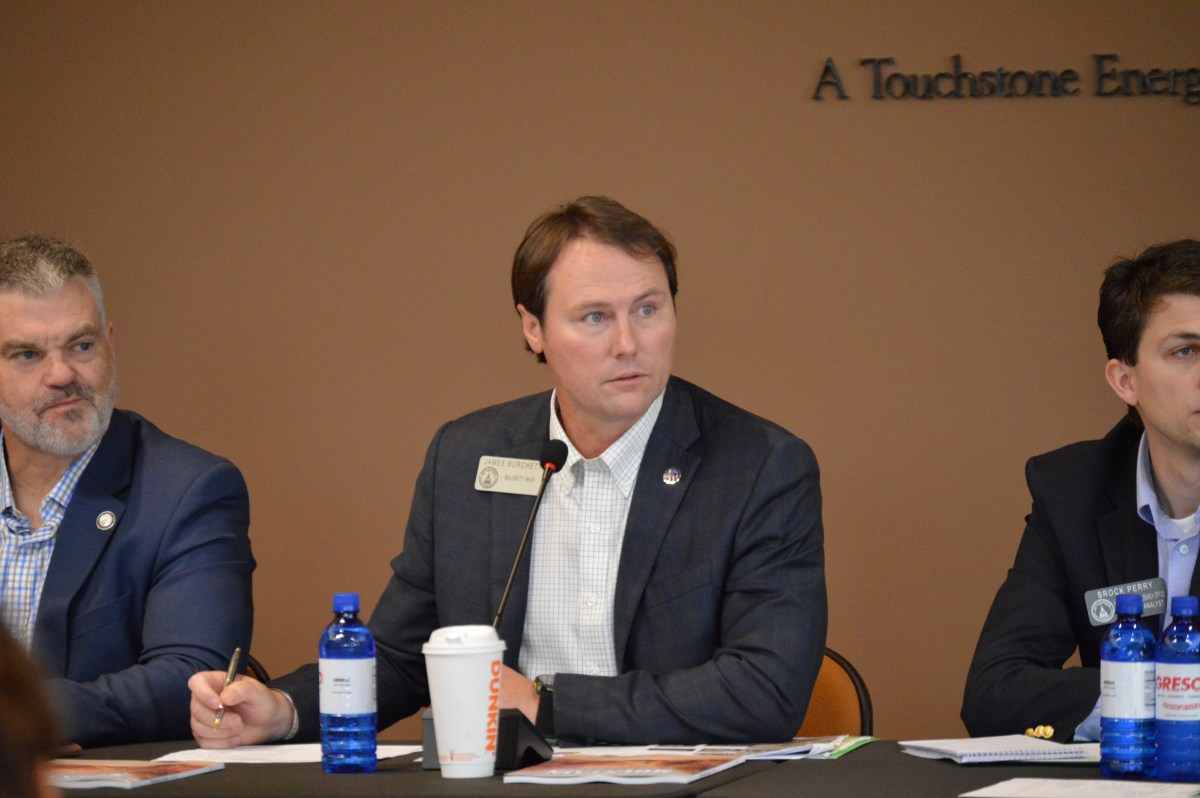
Burchett said his goal is to provide clarity on the issue.
“What I would like to see is a clear delineation; this river from this section to this section is navigable and can be publicly fished. This river from this section to this section is non-navigable and can not be fished. This river is entirely non-navigable. This river is entirely navigable. That’s what we’re looking for.”
Anderson left the nearly five-hour-long session on Thursday pleased with the turnout and how things went.
“Our people showed up. They had a consistent message, and that message was heard by the committee.”
Other meetings are planned for October 18 in Fannin County and October 25 in Bulloch County.

